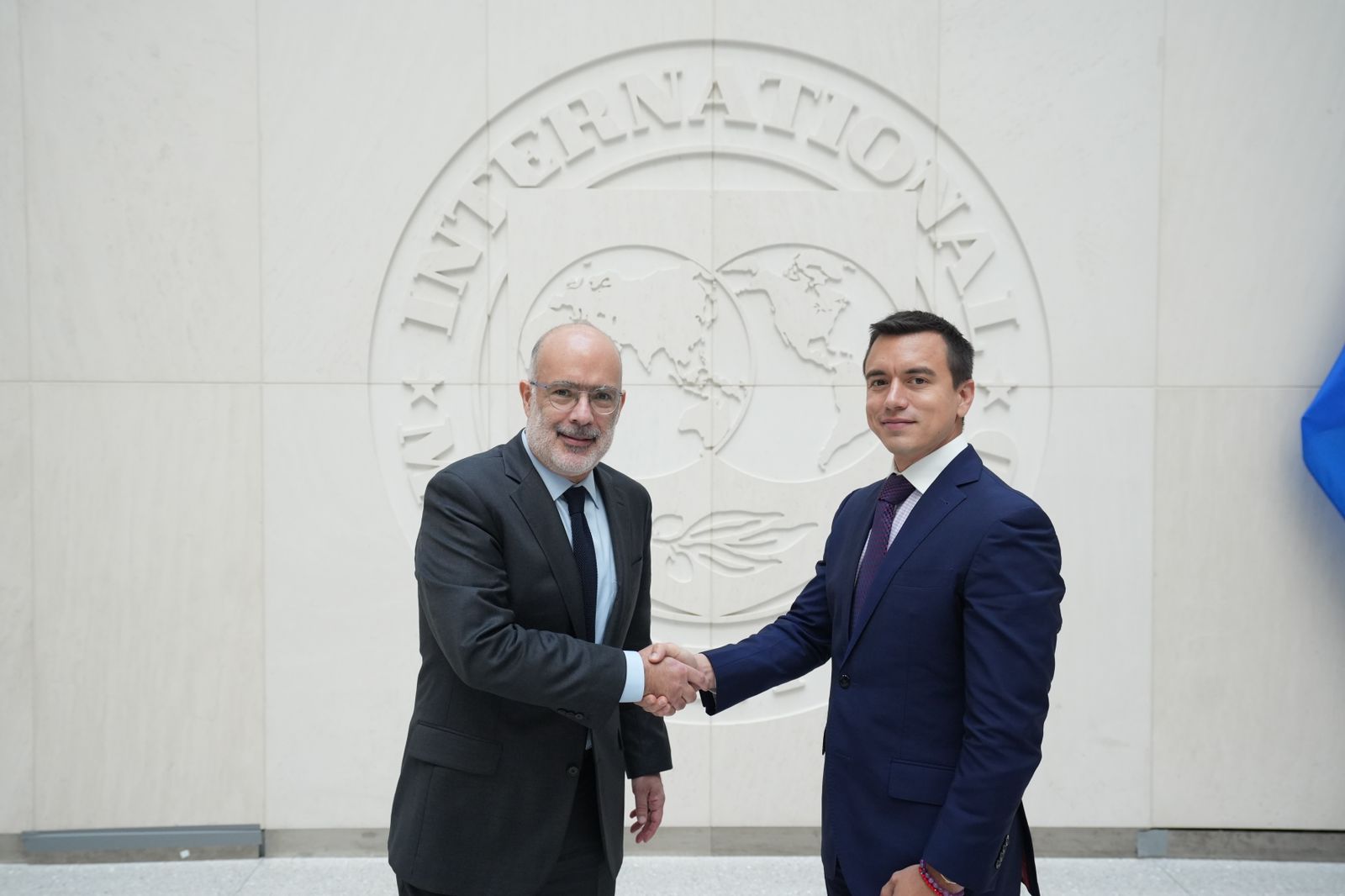Returning to the IMF on such short notice poses challenges, yet the swift reforms implemented by the Noboa administration will likely garner favorable attention from the UN’s financial agency.
The Government of Ecuador, under the leadership of President Daniel Noboa, is on the brink of initiating negotiations for a new credit program with the International Monetary Fund (IMF). This move comes approximately one year and three months after Ecuador successfully concluded its previous agreement with the multilateral organization in December 2022. Should negotiations proceed successfully, Ecuador would embark on its 23rd credit program with the IMF, spanning from loans secured in 2016 following the Manabí earthquake to those obtained during the COVID-19 pandemic in 2020 through the Rapid Financing Instrument (RFI). On March 7, 2024, the IMF officially confirmed that the Noboa Government had formally requested negotiations to commence, signaling the potential for imminent discussions.
What Agreement is Ecuador Seeking?
Ecuador is likely seeking an IMF Extended Fund Facility (EFF) type credit program, akin to the previous agreement signed in 2020 and renegotiated in 2021. The EFF program is deemed most suitable for Ecuador as it aims to provide assistance to countries grappling with significant structural challenges requiring prolonged resolution periods. President Daniel Noboa has indicated the potential for Ecuador to secure up to $3.0 billion under this credit program, with repayment terms ranging between four and a half to ten years. Additionally, Ecuador may have the opportunity to access another IMF loan through the Resilience and Sustainability Service (RSF) credit line, capped at $1.0 billion. Former Finance Minister Fausto Ortiz asserts that Ecuador’s pursuit of multiple lines of financing from the IMF is warranted, given the country’s projected loan requirements of approximately $11 billion in 2024, coupled with the favorable terms offered by the IMF amidst the current impossibility of issuing bonds.
Challenges Facing the New Credit Program:
- Financing Costs: The global increase in interest rates by the United States Federal Reserve (FED) in 2023 has led to elevated financing costs worldwide. Ecuador is not exempt from this trend, and the interest rates it will incur under a new IMF credit program are expected to surpass those of the previous agreement from 2020. Notably, the interest rate on Special Drawing Rights (SDR), which serves as the basis for IMF loan interest rates, has risen from 0.5% in September 2020 to 4% presently. Furthermore, Ecuador faces additional surcharges due to its substantial outstanding credit with the IMF, trailing only Argentina in the region.
- Loan Amount: The IMF established in March 2023 that Ecuador’s access to funds through an EFF program is limited to 200% of the country’s quota within a 12-month period, with an accumulated cap of 600% throughout the agreement’s duration. While exceptional access beyond these thresholds is feasible, the IMF board evaluates each case individually. Ecuador previously secured an “exceptional” amount of $6.5 billion under the 2020 agreement, representing 661% of its quota. Analysts anticipate Ecuador’s request for approximately $3 billion in the current negotiations, aligning with projected repayments to the Fund between 2025 and 2027.
- IMF Conditions: The Noboa Government’s decision to engage with the IMF follows efforts to address key policy measures, including a forthcoming increase in Value-Added Tax (VAT) and potential reforms such as revisiting fuel subsidies and social security adjustments. The government’s proactive stance on implementing these measures signals a willingness to comply with IMF conditions, facilitating smoother negotiations. However, challenges remain in formulating comprehensive strategies for subsidy targeting and social security reform, areas likely to garner IMF scrutiny.
- Transition Mandate: The truncated tenure of President Daniel Noboa poses a unique challenge in IMF negotiations, as the organization seeks assurance of continued commitment to agreed-upon reforms by subsequent administrations. Despite the brevity of Noboa’s tenure, the swift passage of two tax reforms in the National Assembly underscores his administration’s capacity for policy implementation. Moreover, recent responses to domestic security concerns have bolstered confidence in Noboa’s leadership and the likelihood of reelection in 2025, a factor the IMF will consider in assessing Ecuador’s long-term fiscal sustainability plan.
Ecuador faces multifaceted challenges as it navigates negotiations for a new IMF credit program under President Daniel Noboa’s administration. While financing costs and loan amounts pose immediate concerns, adherence to IMF conditions and the assurance of political continuity present formidable obstacles. Nevertheless, proactive policy measures and strategic leadership could pave the way for a successful agreement.


0 Comments